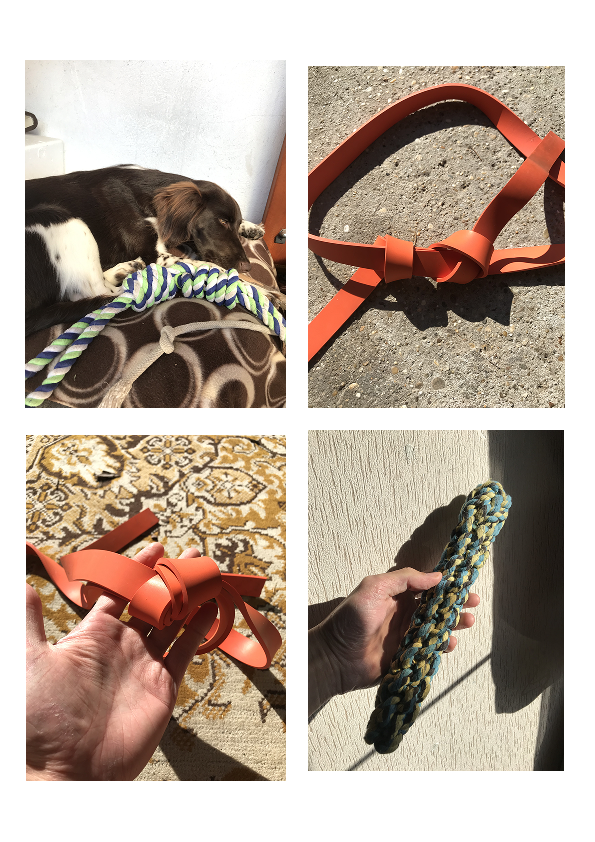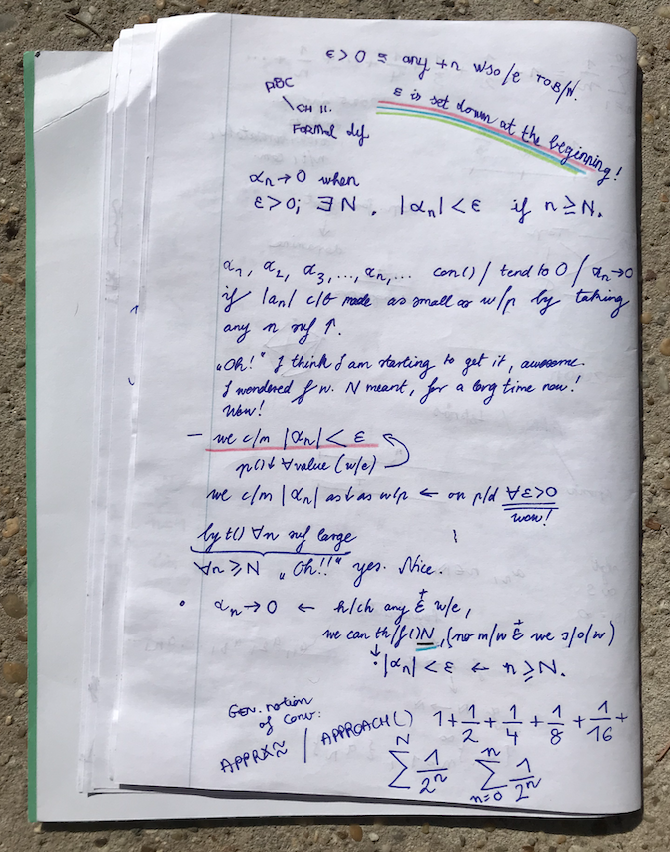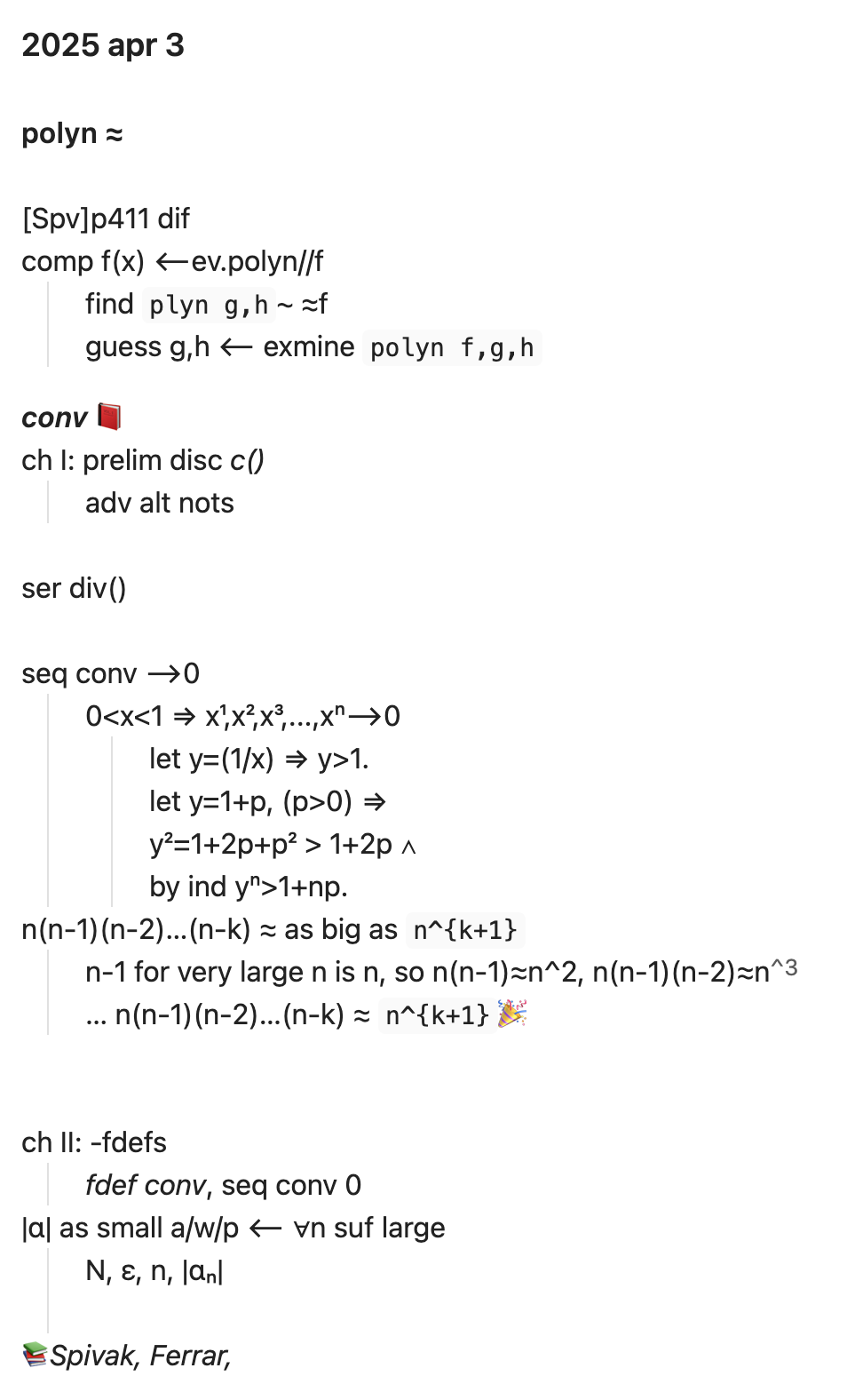things I am learning
today I learnt the fisherman's knot, #
and the overhand bend, two cool knots 🪢 the overhand seems to be a basic building block of knots! I noticed that knots are using in making dog's toys, so that's one useful application for mathematics!

started learning stride and ragtime, blues 🎹 #
very basic stuff, it is lots of fun from Judy Carmichael's, and a Hal Leonard Stride book.
- a good idea is to 🏐 have a medicine ball in one hand while playing the patterns with the other hand
I have been struggling with understaing infinite sequences and series #
and found a good book on them, A text-book of convergence
- it seems to be a good idea to learn about something I am learning. So besides solving exercises, I find I learn well if I read and learn as much as I can about something. For example I have been finding it difficult to understand infinite sequences, so I am learnig about them by reading a book on them.
a fun experience, which recurs and I enjoy #
in mathematics learning, is when I can finally read / write a symbolic expression knowing its meaning. For example I struggled with the meaning of ε and especially N, in the definition of convergence, and yesterday I wrote:
I really like when I start to #
understand the meaning of symbols / expressions, and writing the expression I know the meaning
eg
"on putting down any positive ε whatsoever"
as I was saying this out loud, I was writing
"on p/d ∀ε>0", and the meaning sort of connected to the expression ∀ε>0.
this is really nice, #
from a text-book of convergence I am starting to get the idea of convergence! I wondered about N and now it clicks n ≥ N, you take any N, however large, n will be at least that large, and you take ε as small as you please by ∀ε>0
I still sometimes/often worry about being fluent #
with algebraic manipulations, and wonder how on earth people come up with patterns in proofs like
0<x<1 ⇒ x¹,x²,x³,...,xⁿ⟶0
let y=(1/x) ⇒ y>1.
let y=1+p, (p>0) ⇒
y²=1+2p+p² > 1+2p ∧
by ind yⁿ>1+np.
and while reading the convergence book #
and trying to understand the reasoning, I realised one good way to understand algebraic manipulations is to think about reasonings in contexts that you are trying to understand. Another good way to learn it is to learn algebra, from books like Algebra [Birkhoff, MacLane], and Survey of Algebra [Birkhoff, MacLane], and Basic Mathematics [Lang], which I only started reading recently, and I read spirally, sporadically, and so I seem to become more and more curious about these books and subjects.
Infinity - McCoy Tyner #
this album is really very nice! I would like be able to play like they do. "You can learn anything!" 😌
walking backwards with a kettlebell is #
great, also, taking a kettlebell for a walk turned out to be great exercise, I noticed I can not only carry it, but do all sorts of movement with the bell, traditional kettlebell techniques or invent and experiment with moves. At first I thought this would be weird but it's not. I heard about this idea in this podcast episode: Why your workout should change with each new decade with Gabby Reece
This is a journal page I wrote #

I am enjoy writing and taking notes, and drawing with good pens. I believe the act of writing by hand and using coloring pencils adds a dimension to learning, I often foudn myself staring at the screen reading a passage, which I transformed into taking notes, using Anki, taking notes by typing in Obsidian also:

also, using voice records to talk about things, and recall ideas, using video and a glass board to write stuff, and mental recall, etc
mathematics turns out to be this awesomely multidmensional creative, playful, colorful thing.
I like these books #
Is Math Real?: How Simple Questions Lead Us to Mathematics' Deepest Truths by Eugenia Cheng (affiliate link)

Limitless Mind: Learn, Lead, and Live Without Barriers" by Jo Boaler (affiliate link)

Measurement by Paul Lockhart (affiliate link)

This post contains affiliate links, so please purchase through these links, because then I may earn a small commision at no extra cost to you. Thank you.
- Previous: continuing the blog again
- Next: drawing knots